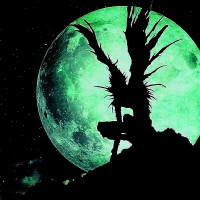![]() Publier en Georgia - Divertissement - 16 Jun 2016 05:08 - 255
Publier en Georgia - Divertissement - 16 Jun 2016 05:08 - 255
Earth 2.0: What we know about Kepler 452b, the most Earth-like planet ever discovered
It's slightly warmer than Earth, slightly larger, could have liquid water on the surface and it's 1,400 light years away
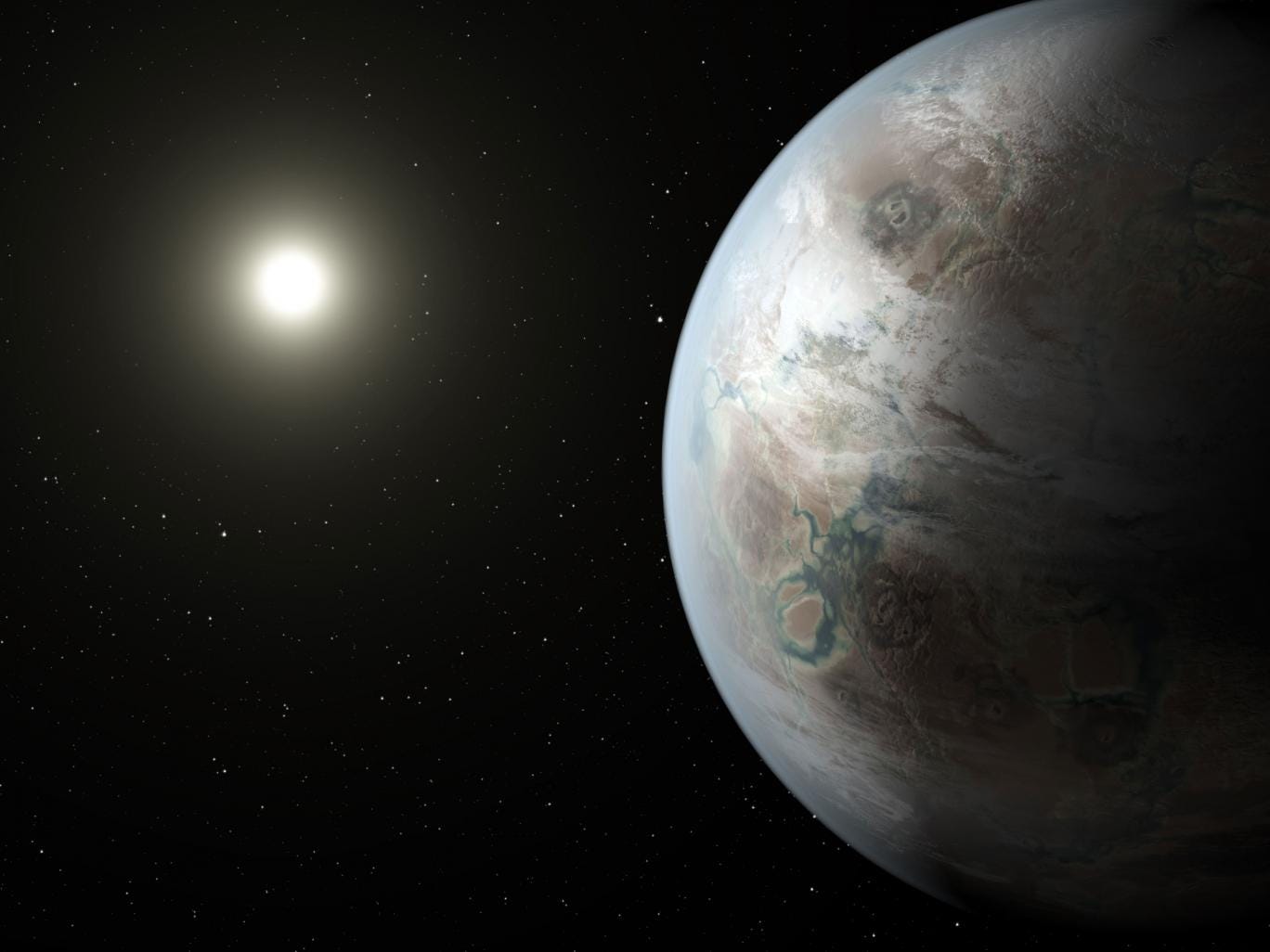 An artist's impression of Kepler 452b, the most Earth-like planet ever discovered
An artist's impression of Kepler 452b, the most Earth-like planet ever discovered
Nasa scientists have announced the discovery of Kepler 452b, also known as 'Earth 2.0', an earth-like planet in our galaxy.
Over the course of years of data-gathering by the Kepler space telescope and even more analysis and work here on Earth, scientists confirmed the existence of the distant exoplanet, which is the most earth-like planet ever discovered.
Although the planet is far too far away to photograph, advanced Nasa technology means we know a surprising amount about this 'New Earth'.
It's the most similar planet to Earth that has ever been discovered
Beginning the conference, John Grunsfeld, ociate administrator for Nasa's Science Mission Directorate in Washington, said: "Today we're announcing the discovery of an exoplanet that as far as we can tell is a pretty close cousin of Earth. It's the closest so far. It's Earth 2.0."
Everything about Kepler 452b - from its size, the length of its years, the estimated conditions on the surface - is very similar to Earth.
Years on Kepler 452b are about the same duration as they are on Earth
A year on the newly-discovered planet - the time it takes to orbit its star, Kepler 452 - lasts for 385 days, only 20 days longer than a year here on Earth.
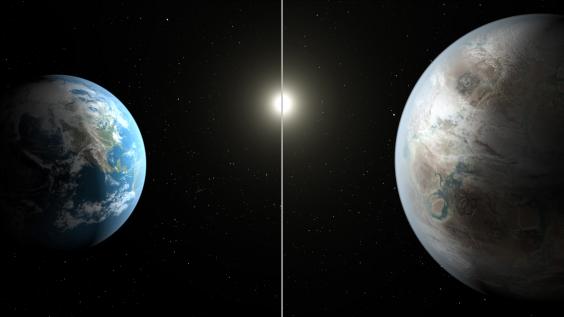
This image compares the size of Earth with the size of Kepler 452b
That's much different to years on other, closer planets to Earth. A year on Venus, sometimes the closest planet to the Earth, lasts only 88 Earth-days. A year on Neptune, further out in our solar system, is the equivalent of 185 Earth-years.
It's spent billions of years within the optimal habitable distance of its star
Kepler 452, the planet's star, is around 1.5 billion years older than our Sun. If a planet is too close to its star, it will be too hot to host life. If it's too far away, it will be too cold.
Kepler 452b has been the perfect distance from its star for many billions of years. According to Jon Jenkins, the Kepler data analysis lead at NASA's Ames Research Centre, this means it's possible that it hosts life on its surface, or at least could have at some point in its history.
It could have active volcanoes and water on its surface
Kepler 452b is possibly the right temperature to allow liquid water to exist on the surface - as far as we know, this is essential for supporting life.

An artist's impression of Kepler 452b, the most Earth-like planet ever discovered
According to John Coughlin, a researcher at the SETI Institute in California, the Kepler team worked with geologists to find out the make-up of the planet. Due to its size and age, it's likely that it is a rocky planet, meaning it could have a volcanic system under its surface.
Humans could potentially survive in Kepler 452b's stronger gravity
The new planet is slightly larger than Earth, and is estimated to have twice the gravitational pull of our own planet. However, according to the scientists on the Kepler team, this doesn't mean it couldn't support life.
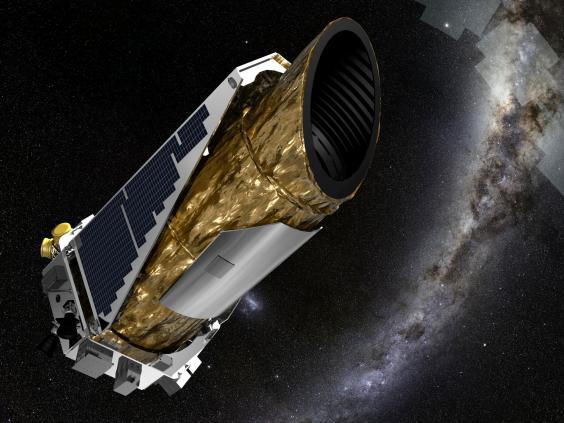
Kepler 452b was named after the telescope that spotted it, the Kepler space telescope
Jon Jenkins said that humans could "adapt" to the gravity, possibly becoming "more stocky over many generations."
"People already adapt to heavy weights - humans are built to do this kind of thing. The human body has an amazing ability to repair itself - so over time, humans could adapt."
Plants could potentially thrive there
The planet's star, Kepler 452, is slightly bigger than our own Sun. The added light and heat energy that the planet receives from the star not only means it is slightly warmer than Earth, but could also mean that plant life could thrive there.
And since plant photosynthesis is what produces the air we breathe, that means this essential building block of life has a good chance of living on Kepler 452b.
Jon Jenkins told the press conference: "The sunshine from Kepler's star is very similar to sunshine from our own star, and plants could be able to photosynthesise just the same."
"It would feel a lot like home."
You could even get a tan there
Dr Daniel Brown, an astronomy expert at Nottingham Trent University, said: "Kepler 452b receives the same kind of spectrum and intensity of light as we do on Earth. This means plants from our planet could grow there if it were rocky and had an atmosphere. You could even get a healthy tan like here on holiday."
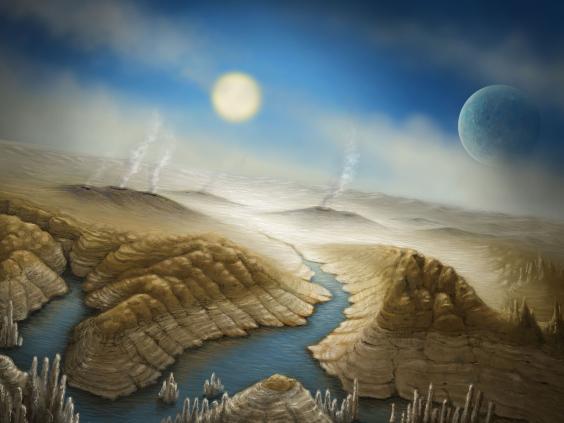
This artist's impression shows what the surface of Kepler 452b could look like, with active volcanoes and liquid water
Much more research on the planet is still being done, which will be able to confirm whether anything could thrive on Kepler 452b.
Unfortunately, it's pretty much impossible to get there (at the moment)
Kepler 452b is warm, possibly wet, and might be able to host plant life - however, it's 1,400 lightyears away.
A lightyear is the distance that a beam of light can travel in a year. Light travels at over 670 million miles per hour. Light from the Sun takes around eight minutes to reach Earth, so naturally, a trip to Kepler 452b would take an incredibly long time.
Other articles by Halshley News:
1) Real Ghost Stories: “God Please Help Me”
2) 7 Facts That Will Make You Feel Very Small
Please subscribe my NewsPaper and vote the article
Credits: Nasa
It's slightly warmer than Earth, slightly larger, could have liquid water on the surface and it's 1,400 light years away
 An artist's impression of Kepler 452b, the most Earth-like planet ever discovered
An artist's impression of Kepler 452b, the most Earth-like planet ever discoveredNasa scientists have announced the discovery of Kepler 452b, also known as 'Earth 2.0', an earth-like planet in our galaxy.
Over the course of years of data-gathering by the Kepler space telescope and even more analysis and work here on Earth, scientists confirmed the existence of the distant exoplanet, which is the most earth-like planet ever discovered.
Although the planet is far too far away to photograph, advanced Nasa technology means we know a surprising amount about this 'New Earth'.
It's the most similar planet to Earth that has ever been discovered
Beginning the conference, John Grunsfeld, ociate administrator for Nasa's Science Mission Directorate in Washington, said: "Today we're announcing the discovery of an exoplanet that as far as we can tell is a pretty close cousin of Earth. It's the closest so far. It's Earth 2.0."
Everything about Kepler 452b - from its size, the length of its years, the estimated conditions on the surface - is very similar to Earth.
Years on Kepler 452b are about the same duration as they are on Earth
A year on the newly-discovered planet - the time it takes to orbit its star, Kepler 452 - lasts for 385 days, only 20 days longer than a year here on Earth.

This image compares the size of Earth with the size of Kepler 452b
That's much different to years on other, closer planets to Earth. A year on Venus, sometimes the closest planet to the Earth, lasts only 88 Earth-days. A year on Neptune, further out in our solar system, is the equivalent of 185 Earth-years.
It's spent billions of years within the optimal habitable distance of its star
Kepler 452, the planet's star, is around 1.5 billion years older than our Sun. If a planet is too close to its star, it will be too hot to host life. If it's too far away, it will be too cold.
Kepler 452b has been the perfect distance from its star for many billions of years. According to Jon Jenkins, the Kepler data analysis lead at NASA's Ames Research Centre, this means it's possible that it hosts life on its surface, or at least could have at some point in its history.
It could have active volcanoes and water on its surface
Kepler 452b is possibly the right temperature to allow liquid water to exist on the surface - as far as we know, this is essential for supporting life.

An artist's impression of Kepler 452b, the most Earth-like planet ever discovered
According to John Coughlin, a researcher at the SETI Institute in California, the Kepler team worked with geologists to find out the make-up of the planet. Due to its size and age, it's likely that it is a rocky planet, meaning it could have a volcanic system under its surface.
Humans could potentially survive in Kepler 452b's stronger gravity
The new planet is slightly larger than Earth, and is estimated to have twice the gravitational pull of our own planet. However, according to the scientists on the Kepler team, this doesn't mean it couldn't support life.

Kepler 452b was named after the telescope that spotted it, the Kepler space telescope
Jon Jenkins said that humans could "adapt" to the gravity, possibly becoming "more stocky over many generations."
"People already adapt to heavy weights - humans are built to do this kind of thing. The human body has an amazing ability to repair itself - so over time, humans could adapt."
Plants could potentially thrive there
The planet's star, Kepler 452, is slightly bigger than our own Sun. The added light and heat energy that the planet receives from the star not only means it is slightly warmer than Earth, but could also mean that plant life could thrive there.
And since plant photosynthesis is what produces the air we breathe, that means this essential building block of life has a good chance of living on Kepler 452b.
Jon Jenkins told the press conference: "The sunshine from Kepler's star is very similar to sunshine from our own star, and plants could be able to photosynthesise just the same."
"It would feel a lot like home."
You could even get a tan there
Dr Daniel Brown, an astronomy expert at Nottingham Trent University, said: "Kepler 452b receives the same kind of spectrum and intensity of light as we do on Earth. This means plants from our planet could grow there if it were rocky and had an atmosphere. You could even get a healthy tan like here on holiday."

This artist's impression shows what the surface of Kepler 452b could look like, with active volcanoes and liquid water
Much more research on the planet is still being done, which will be able to confirm whether anything could thrive on Kepler 452b.
Unfortunately, it's pretty much impossible to get there (at the moment)
Kepler 452b is warm, possibly wet, and might be able to host plant life - however, it's 1,400 lightyears away.
A lightyear is the distance that a beam of light can travel in a year. Light travels at over 670 million miles per hour. Light from the Sun takes around eight minutes to reach Earth, so naturally, a trip to Kepler 452b would take an incredibly long time.
Other articles by Halshley News:
1) Real Ghost Stories: “God Please Help Me”
2) 7 Facts That Will Make You Feel Very Small
Please subscribe my NewsPaper and vote the article
Credits: Nasa
Donner
FarzadtavasolCommentaires (255)

Can we send my mother-in-law there please?

there are many planets like earth, but they are too far from us... while we dont reach new tecnological progress, we won t be able to research even milk way planets closely....

#Tanger unfortunately no... :/

Erti planetaa amaze zalian rogavs magram zalian shorsaa . d
d

#LukaLuka არვიცი რამდენად სწორი ინფორმაცია გაქვს.. მე ყოველთვის თვალს ვადევნებ ნასას სიახლეებს და ამჟამად აღმოჩენილი დედამიწის ყველაზე იდენტური პლანეტა კეპლერ 452ბე-ა

V
S

SVC

VSC

517/33

FINALY A GREAT ARTICLE!!!1

#reVokasi thank you!

interesting...

s525 v42

Keep up with this kind of articles o7

v+s

#majk o7

534 s 58 v please back

vcs https://www.erevollution.com/tr/article/9569

Great ^^

ვა რა საინტერესოა 

#Mengrelian Thank you bro! :3

Read it and loved it!  Tnx for the amazing article
Tnx for the amazing article

#amethyst77 I m glad to hear that. Thank you for reading o7

V+s

v+s

v+s

v+s

suchet r14

s v

vs

0/

++

tt

v+s

https://www.erevollution.com/en/newspaper/2765

o7 :3

sv -
https://www.erevollution.com/sr/article/9175

S562
V103

https://www.erevollution.com/fa/newspaper/2272

old news

s+v

s+v

asd

o/

asd

vs

vv

Com

vsc

vsc

V+s

V+S

v

s4s fast svc pm https://www.erevollution.com/tr/newspaper/2893

v+S
https://www.erevollution.com/tr/article/8085

Oro?! Great deal of information, de gozaru

https://www.erevollution.com/en/article/8527

nn

v

MEDIA BOOM ACTION https://www.erevollution.com/en/article/9224 S+V+S

https://www.erevollution.com/es/newspaper/2475 SUB PLS https://www.erevollution.com/es/newspaper/2475 SUB PLS https://www.erevollution.com/es/newspaper/2475 SUB PLS https://www.erevollution.com/es/newspaper/2475 SUB PLS

This article is shit

#Emotion :3 thnaks anyway 


nice ... s+v

njn

a,maklakla

Comment! 

Very good article, anyway V+ S+

Sub640 v196

موافقم

Ooo

vsc

vs

v+s

Vcs done

...

v

vs

vs

sgd

vs

vsc

cvs

v+s+c

Over 3000 exoplanets have been discovered since 1988 (more specifically, 3422 planets in 2560 planetary systems, including 582 multiple planetary systems, have been confirmed, as of 1 June 2016).

s v

.

https://www.erevollution.com/en/newspaper/2716

svc

knjbk

Let s destroy another planet !

#luke maybe kepler 452b is already destroyed..

svc

o7

...

nice work 

sub 727 v 310

svc

patames

svc o7

vcs

Vcs

746-339

cv

v

Ciao

erol tas

ćć

vvvvv

c

V+S

best used sub ever, good job bro 

#Bumblebee thank you man :3




